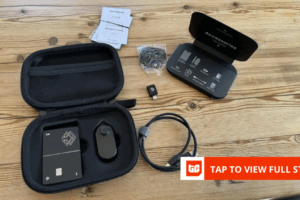
Nairobi — After months of mounting criticism over unauthorized surveillance, abductions, and police brutality during anti-government protests, the Directorate of Criminal Investigations (DCI) appears to be making a strategic move to rebuild public trust.
But is it too little, too late?
On Tuesday, July 22, 2025, the DCI unveiled a revamped version of its ‘Fichua kwa DCI’ crime-reporting centre at its Nairobi headquarters.
The platform, launched in 2020, facilitates anonymous reporting of criminal activities to security agencies.
The relaunch, presided over by Interior Cabinet Secretary Kipchumba Murkomen, British High Commissioner Neil Wigan, and Inspector General of Police Douglas Kanja, introduced new features, including a WhatsApp line (0709 570 000), upgraded servers, and enhanced backup systems to improve efficiency and data security.
Authorities hailed the upgrade as a step toward people-centered policing and public accountability. But on social media, many Kenyans expressed skepticism.
Unlawful surveillance
Public trust in law enforcement began eroding after the government’s crackdown on critics following the 2024 anti-Finance Bill demonstrations, which grew into broader anti-government protests.
Allegations of unlawful surveillance, enforced disappearances, and violent crackdowns on protesters–many of them young and active on social media–have further strained relations between the public and police.
State agencies, including the National Police Service, have been accused by human rights groups and diplomatic missions of employing heavy-handed tactics.
One of the most contentious claims has been alleged collusion between law enforcement and mobile phone service providers, particularly Safaricom, to track and monitor protest participants.
In June 2025, Safaricom publicly denied these accusations.
“On the current issue in discussion, we confirm that we have not received any court order requiring us to share customer information with any government agency,” read a company statement.
“We respect our customers’ privacy and adhere strictly to the country’s data protection laws. As such, we do not share any customer data unless explicitly required of us via a court order.”
Skepticism
Still, skepticism persists, particularly over the unexplained abductions of youth activists.
Speaking at the relaunch, CS Murkomen described the initiative as “a strong commitment to proactive public safety” and emphasized the government’s vision of a community-oriented policing model.
“This platform has helped resolve serious crimes ranging from murder to human trafficking and terrorism,” he said.
British High Commissioner Neil Wigan praised the centre’s five-year track record and expressed hope the upgrade would encourage more Kenyans to report crimes confidently.
“Public participation is vital to making Kenya safer,” he said.
Inspector General Kanja said the revamp underscored a shared commitment to rebuilding trust between police and the public.
But many Kenyans remain unconvinced.
“We’re not boarding. Especially on WhatsApp. Guys who arrested someone and handed him over to his killers want us to believe they’ll keep info anonymous?” wrote X user Bonnie Yafesi.
Another user, Edwin Odima, added: “We’re not doing that. NIS ifanye kazi yake,” referring to the National Intelligence Service.
Questionable timing
Critics argue the timing of the upgrade is telling–coming amid damning human rights reports and growing public paranoia about interacting with government systems.
Sign up for free AllAfrica Newsletters
Get the latest in African news delivered straight to your inbox
Success!
Almost finished…
We need to confirm your email address.
To complete the process, please follow the instructions in the email we just sent you.
Error!
There was a problem processing your submission. Please try again later.
“You need to do a lot more to regain public confidence after all the misplaced brutality and shenanigans,” one user commented.
A common sentiment is that no government system can truly guarantee anonymity in the current political climate, where whistleblowers and protesters have faced harassment or disappearance.
While the upgraded ‘Fichua kwa DCI’ centre represents a significant investment in technology and international cooperation, many believe true reform requires more than new tools.
There are growing calls for transparent investigations into past abuses, stronger whistleblower protections, and enhanced oversight of security agencies.
For now, the success of the revamped centre may depend less on its features than on whether Kenyans feel safe enough to use it.
Whether this signals a genuine shift toward transparency–or simply damage control–remains to be seen. But one thing is clear: regaining public trust will take far more than a new phone number.





